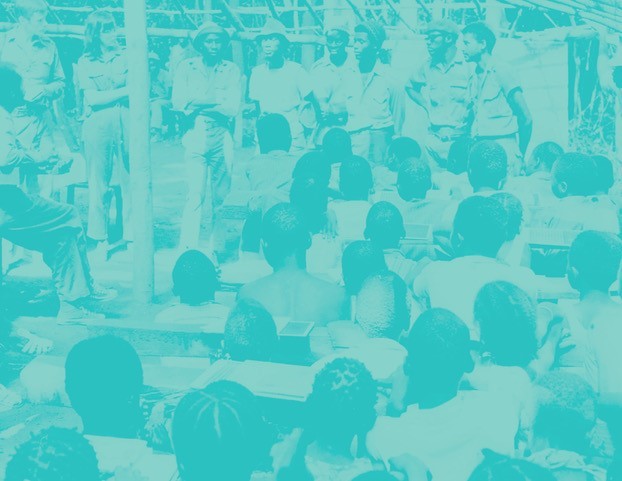
On April 7th, I attended the Graduate Center’s Activism in Academia conference, where CUNY-wide scholars presented primarily on work that was produced from within the “ivory tower” of academia but still valuable for underrepresented communities wanting change. The Consciousness & Revolution II conference on May 5th offered a different perspective: the panels collectively focused on the international, intergenerational, and cross-cultural efforts to enact revolutionary change, in which alternative and insurgent education formed outside conventional institutions were the driving force.
In the first panel, “Contemporary Alienations: Roots and Branches,” Shehla Rashid Shora began the conference by proposing the need for establishing alternative schools to strategically combat authoritarian forces. She referred to India as an example of these forces effectively using education and schooling to attain socio-political power. A large factor of the Bharatiya Janata Party (BJP), a nationalist right-wing movement in India currently in power, was their serious countrywide effort since the late 1980s to establish Hindu theological schools—the graduates of which would eventually support and vote for the party’s policies. Their progressive counterparts had demanded a publicly funded education system in an India meanwhile devoid of one, but Shora felt their lack of strategy had offered no serious opposition to the BJP’s efforts. She urged contemporary progressive movements to learn from the mistakes of the past, to analyze right-wing strategies regarding education, and to consider selectively adopting them.
The panel “Genealogies of Militancy: From Alienation to Action” then shifted the conversation to provide examples of international grassroots movements that use experiential learning to advance their endeavors. Rui Estrela offered one such example when he presented on the Portuguese social movement Plataforma Gueto, which principally educates its non-academic yet politically conscious militants through hip hop, “learning by doing,” and the concept of “Each One Teach One.” During the Q&A, the lively discussion highlighted how theories of social change can be generated not only “deductively” by academics but also “inductively” by grassroots movements like Plataforma Gueto.
The examples of successful alternative education continued in the panel “Education Pending Revolution,” where the presentations included more domestic organizations that fostered liberated thinking. Mary Phillips read a chapter from her upcoming biography on Ericka Huggins, a high-ranking member of the Black Panther Party, and described the achievements of the Panthers’ Oakland Community School. The alternative school provided culturally relevant education that tried to develop the critical thinking skills in black children, who the Panthers felt would not be nurtured in traditional public schools. Phillips noted that when the children graduated from the Panther school and entered the public-school system, they excelled and sometimes even grade-skipped.
In a similar vein, Marcella Gilbert, a member of the American Indian Movement, recounted her involvement with the “We Will Remember” Survival Group. The Survival Group was one of the alternative schools created in the 1970s to reinforce their cultural heritage and to combat the public education system that American Indians felt were failing their youth. These schools remarkably granted students full authority over a curriculum that often incorporated current events to help them better understand their history and encourage involvement with social movements against oppressive forces. In fact, we have likely seen a few alumni recently protesting the Dakota Access Pipeline.
So, I am now left to wonder: Where else can we find international and domestic movements that have historically circumvented the limitations of mainstream schooling, and what can we learn from their successes and failures to sharpen our own conscious thinking in our pursuit of revolution?